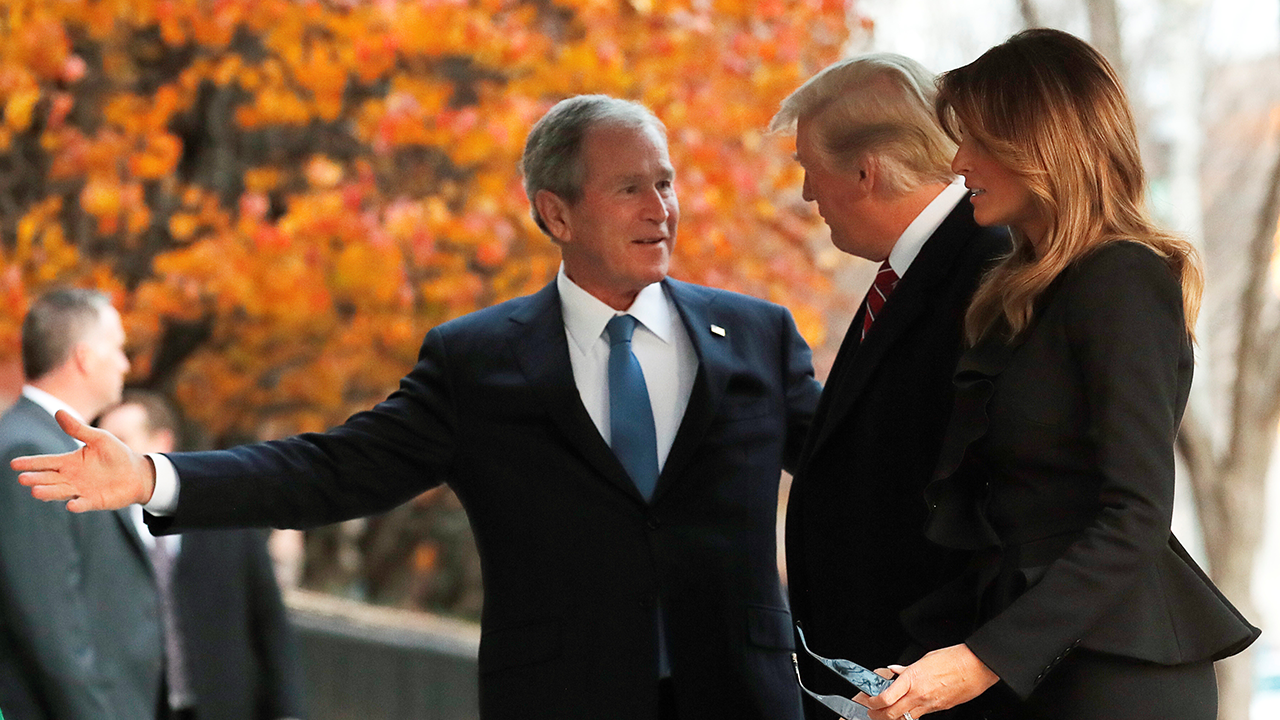War on Terror vs today’s Middle East conflicts show different US approaches

The War on Terror that began in the aftermath of the 9/11 attacks led to regime change in Iraq and a briefly democratic Afghanistan, before former President Joe Biden’s disastrous withdrawal. More recently, the conflict between Israel and Iran saw the U.S. stepping in to help destroy nuclear facilities. However, it is important to note that comparing these two eras is not as simple as making apples-to-apples comparisons.
The image of then-White House chief of staff Andrew Card whispering in President George W. Bush’s ear during an elementary school reading event that the Twin Towers had been hit by terrorists marked the beginning of three decades of U.S. involvement in the Middle East. According to Heritage Foundation senior China and National Security Policy studies fellow Steve Yates, who served as a top national security affairs adviser to then-Vice President Dick Cheney during the Bush administration, the world has changed significantly in the past 20 years.
Yates pointed out that during the Bush years, China was led by Hu Jintao, while the current leadership under Xi Jinping presents a different set of challenges. Additionally, the world has shifted away from a globalist approach, with President Donald Trump leading essentially the first “post-globalist” presidency.
The U.S. intervention in the Middle East during the War on Terror led to the overthrow of Saddam Hussein in Iraq and a prolonged ground war. Iran, at the time, was led by Mahmoud Ahmadinejad, whereas now Ayatollah Ali Hosseini Khamenei is a more prominent figure. Trump has emphasized the importance of Mideast allies taking responsibility for regional security, rather than relying on American boots on the ground.
Yates highlighted Trump’s readiness to use decisive force to prevent Iranian nuclear proliferation, without seeking to occupy or remake Iran in America’s image. He also noted the importance of allies like Israel, who have not requested direct military intervention but have received rhetorical support.
The current challenge lies in whether the international community, particularly the EU-3 (Germany, Great Britain, and France), will act on their shared interest in preventing Iran from obtaining nuclear weapons. The traditional diplomatic approach of the early 21st century may no longer be effective, as seen in Israel’s decisive response to recent events.
Yates commended Trump for balancing America First principles with support for allies in need. The world is in a fundamentally different place compared to the early 2000s, and Trump’s approach to foreign policy reflects this shift.
In conclusion, while the War on Terror and recent conflicts in the Middle East share similarities, it is essential to consider the changing geopolitical landscape and diplomatic strategies when analyzing these events. President Trump’s approach to international relations demonstrates a nuanced understanding of America’s interests and alliances in a rapidly evolving world.




